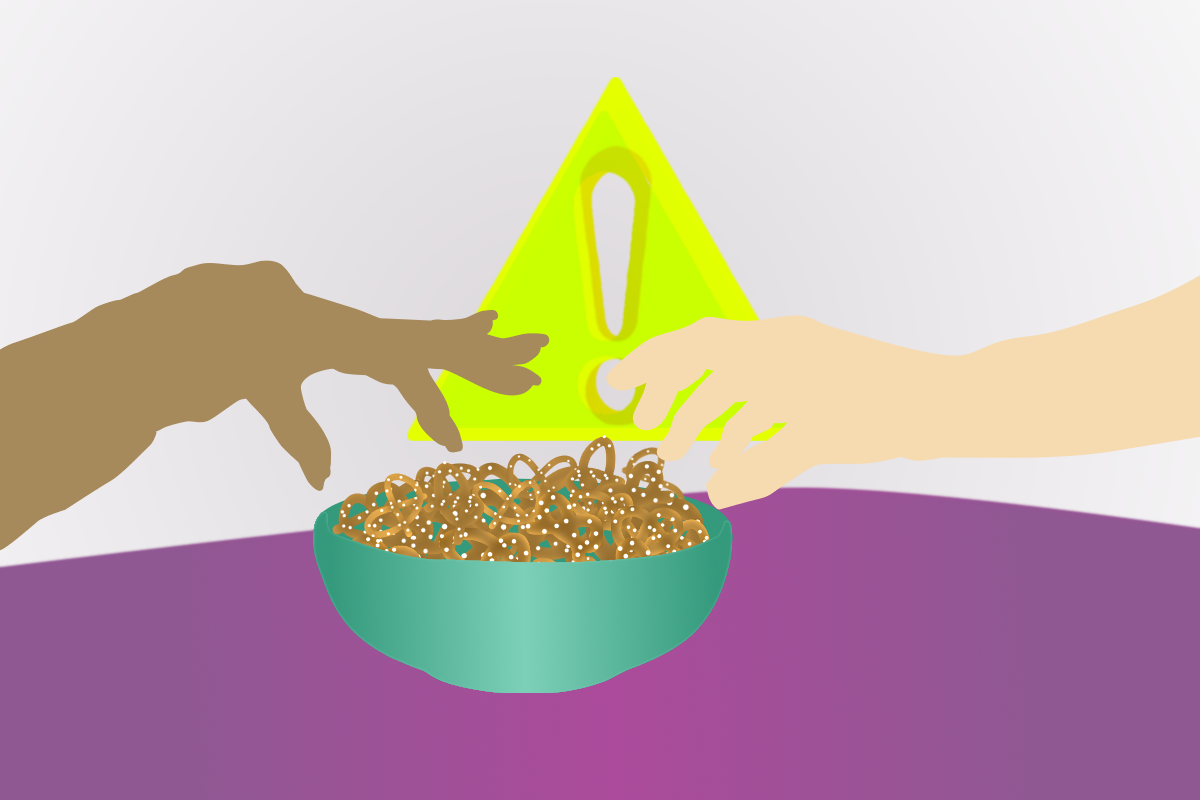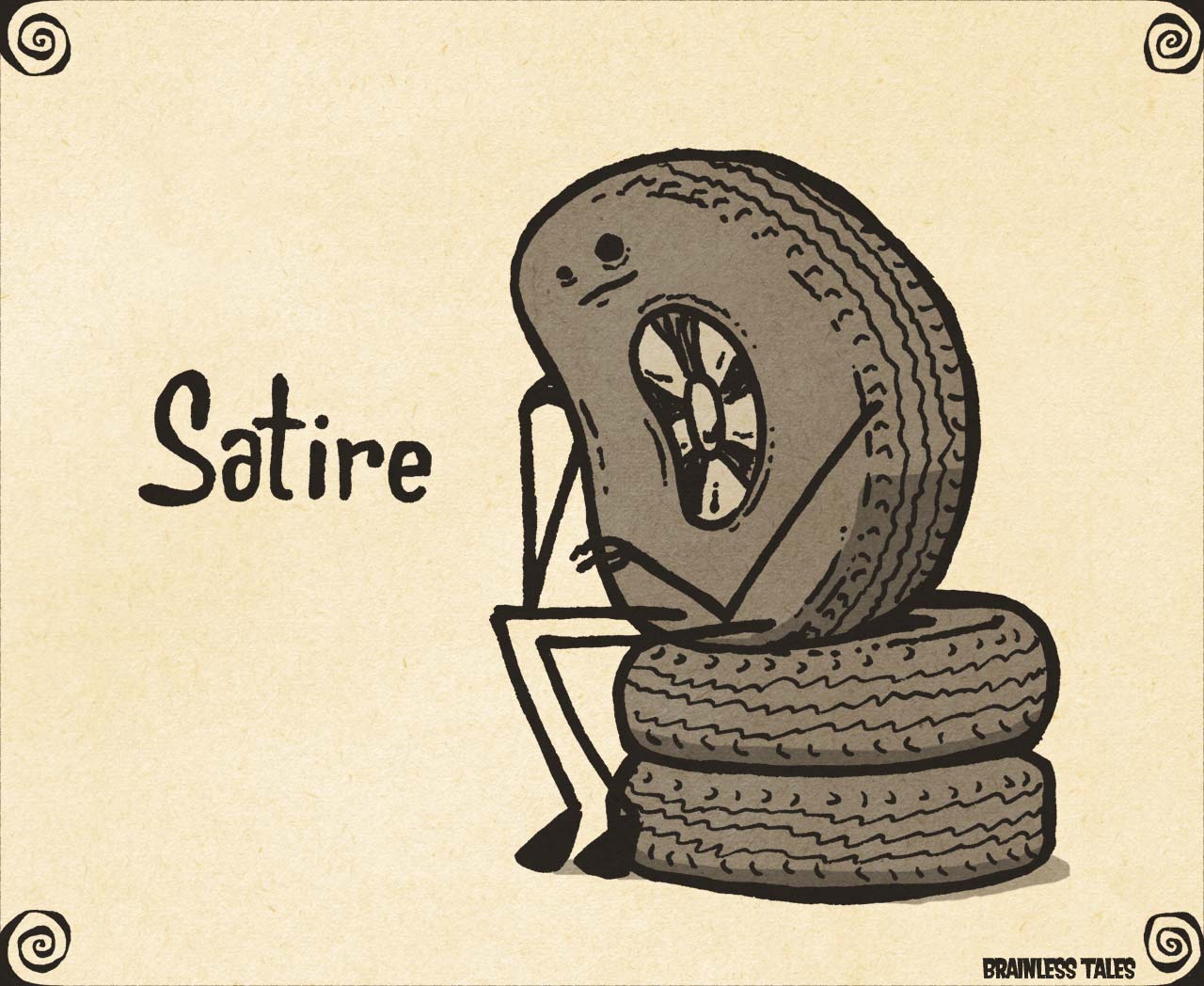JULIA GROSVENOR; Satirist: grosvejm@plu.edu
Sharing food is a great experience for many people, and we all know it is especially popular during college. Splitting an entree can be a wonderful bonding moment for plenty of folks, although some may prefer to keep their food to themselves, which is also fine. But it is important to note that nobody wants their food to get snatched away willy nilly. And once someone casually grabs a fry without asking, it can be really hard to sort things out for both parties. It is best to make sure sharing food is done right before the noms exchange hands, so here is a Lute’s guide to sharing food.
The first rule of eating your friend’s food is that CONSENT is KEY. Even if you think your friend won’t mind if you eat their food, if you eat someone’s food without telling them and getting permission, that is stealing. This concept is hard to understand, because on TV and maybe even in our own experiences we see sharing food as something spontaneous, like “oh hey that guy had some KFC and just sat down at the sportsball party and held out the bucket for his buddy to grab a wing, and it was so effortless and romantic.”
That is not the case. Until you ask, there is no way to know if your bro got those wings to share them. This concept is called yes means yes. This means that only an obvious consent to grab a wing is acceptable. Not just holding out the bucket, and especially do not try grabbing a wing to see if your bro gets mad first. Nobody wants your finger germs on their chicken. (Safe food sharing, by the way, is an article for another time.)
There is another principle of food sharing just as important as yes means yes, and that is the no means no principle. At any point during a snack, your gal pal might say she needs you to lay off. Even if she knows you’re still hungry, even if you don’t know why, any objection means you need to stop immediately. It is also a good idea to watch your snack pal to see if she looks uncomfortable or grossed out at any time. You might just be chewing with your mouth open, but always stop eating and check to see what is wrong. This will just make sure splitting a burger is enjoyable for both of you.

The rules are supposed to be just that simple. However, much like ordering at Starbucks, it gets ever more confusing and complicated. For example sometimes things happen that block even the possibility of consenting to go halfsies on a meal. For example, if your amigo has had too much to drink, they might not seem to mind if you take a bite of their Quesarito. But that just means they are incapable of giving consent. Now before anyone asks, what if two amigos are drunk and both are eyeing the other’s Taco Bell order? This is like putting on blindfolds and trying to high five. Maybe it will work, but you could also smack each other, and then nobody is happy. Even worse, only one person could get smacked and then it becomes a question of who is really the bad guy. Blindfolded or no, if you know the other person is blindfolded and still choose to swing your hand, you could smack them, and that’s on you. But enough with the metaphors. Some other possible barriers to consent include: your friend is asleep, your friend is a child (aka too gullible to understand food trading) or an animal, or your friend is mentally disabled.
There is another problematic thing known as implied consent. This does not exist, despite many people who follow most of the rules claiming that there are circumstances which bypass the yes means yes principle. These people might say “but they shared their food with me before” or “they share their food with everyone” and think this means a person won’t mind sharing their food any other time. They also might say “they should have tried harder to protect their food” or “they made their food look so appetizing and snatchable” like this qualifies as asking to have their food taken. On top of this, they might say that “they teased them with the idea of sharing food all day” or some other element of a person owing another access to their food. All of these situations, even combined, do not mean any given person consents to sharing food or is to be blamed if their food is taken. Even in the rare case that you know a person who likes their food to be taken without being asked, that does not mean they have given you permission to be the person who swipes a sip of their smoothie.
Still you should remember that you do owe it to yourself to protect your own grub. If you don’t want anyone to eat your Jelly Belly’s, say it loud and clear, and never hesitate to smack away grabby hands. Be specific as well: if you only want to share the black licorice and buttered popcorn ones, make it clear that the berry blues are off limits.
That nearly covers everything in regards to the actual act of food sharing, but that doesn’t mean there aren’t more manners to be observed here. While there are a lot of risks that make stealing food extra bad, there is much more involved when it comes to respecting a person’s right to their own lunch. You can still be totally irritating and ruin someone’s appetite if you bother a person about their food. Activities like staring at another person’s food, touching it, taking pictures of it, and smelling it, just to name a few, all require consent as well. Otherwise, these behaviors are super annoying, and can be considered harassment, and you could get kicked out of the restaurant. And yes, even asking about sharing food can be harassment, if for example you won’t stop asking or you beg the person next to you in class to share their Chex Mix. There is a time and a place, people!
To conclude, the best advice I can give about food sharing is to talk about it first, and not when your mouth is already full. Because ew.
 Campus Safety Incident Reports
Campus Safety Incident Reports Watch Now
Watch Now
















